London filmmaker discusses his trailblazing LGBT short movie {Brace}
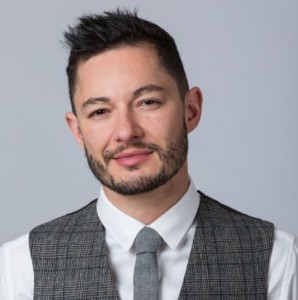
Brace, writer/director Jake Graf’s short/indie pic about a whole slew of things transsexual, has taken on a life of itself. A queer film festival favorite, Brace has pleased a wide variety of audiences and cultures but few, I’ve found, really say why. It might be that the 10 minute or so film is both a mystery and a smack at LGBTQ violence. Its grit, filmed among other places at Manbar, one of London’s queer icons, lends a peculiar view on violence that is both local and cosmic.
The premise is simple enough. Subject A discovers his sexual identity, leaves his wife and meets Subject B, a strikingly composed, seemingly lost half, at a gay bar. They cavort, violence outside the bar ensues and then, in a completely unexpected twist (or not), Subject B makes a discovery about Subject A that upends the entire narrative.
Now, if some of you familiar with Brace feel as if I’ve already given too much away, it’s only because the fact that the story is even being told deserves our curiosity. How, for example, does the role of gender identity inform our way of navigating the world? Why does Subject A continue to lie after we’re been led to believe that he’s cleansed himself of lying when he comes out to his wife? These and other questions we find ourselves asking help elevate Brace beyond the well-atrophied LGBTQ indie film tropes.
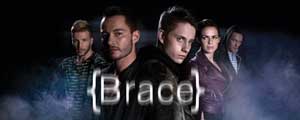
Luckily for us, Jake and his team reached out to San Diego LGBT Weekly and we gladly obliged.
San Diego LGBT Weekly: ‘Brace’ can mean a lot things and it can be used in a lot of ways; as a noun, a verb, as an adjective even, as in, “Do you think she was sufficiently braced to hear the news?” How do you use it?
Jake Graf: For us, ‘Brace’ referred to the similarities between the two male leads: a brace of birds, a pair, a coupling. There was of course also the idea of bracing yourself for news, or for a shock, and of course a brace in architecture which serves to hold and support, so the many meanings were what made co-director Sophy Holland and I decide on the title!
The film bills itself as a short narrative about homophobia. Are there many differences between American homophobia and England’s version? Are there any differences given our cultural connections?
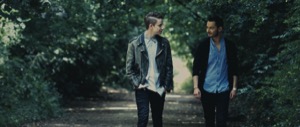
Whilst I did live in New York for a year nine years ago, I didn’t have much experience of homophobia on the streets. Always having presented as very male, I once got called a ‘faggot’ on the subway, and the kids in Spanish Harlem, where I was staying, used to throw blocks of ice at me as I walked by, to calls of ‘get the gay boy!’, but there was never more than that.
The narrative in Brace touches on phobias from the outside as well as on the inside. The two main characters in Brace each represent different POVs, generationally and emotionally. Are they archetypes or sides of you, Jake, that have not been reconciled?
I wrote Brace some five years ago, at the beginning of my transition, which for me was a time of huge change, both emotionally and physically. Aside from learning how to most naturally embrace an identity that I had been told since birth I wasn’t allowed to acknowledge, and dealing with a second puberty (albeit one that felt overwhelmingly right!), I suddenly found myself attracted to men for the first time, which was a more than unsettling experience. That I was in a relationship with a wonderful and loving woman at the time only further muddied the waters and it was a very difficult period of change and heartache. I think people make the mistake of thinking the second they get their first shot of hormones or their first surgery, that things will magically fall into place, but it took me years to feel happy within myself, and the lack of immediacy only exacerbated my frustrations.
Both Rocky and Adam mirror aspects of how I felt at the time, with a more than healthy helping of self- loathing, doubt, and internalized homophobia and transphobia, a result of years of hiding away the person that I knew that I had always been. Now, seven years in, I am more than happy with my attractions, which have now levelled out: I find both men and women attractive, and find myself drawn to strong, confident and kind people, whichever gender.
I am more comfortable within myself than I ever have been, and have found that this calmer and more positive outlook has made me more focused, more creative, and infinitely more driven to elicit positive changes for future generations of transgender people, so that hopefully one day trans people are treated with understanding and acceptance, and given the help that they need when they truly need it: as young, scared and lost children.
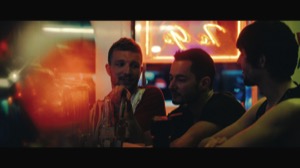
What has Caitlyn Jenner changed?
Love or hate her, Caitlyn Jenner has moved things on for trans people drastically, by simply putting herself out there, but it’s important not to forget that Laverne Cox was the woman who spearheaded much of this change, years before Caitlyn! As the first trans person ever to grace the cover of Time magazine, I feel that it was she who really got people sitting up and taking notice, and for that we all owe her a huge debt.
With regards to Caitlyn, granted, she could have chosen to transition quietly, privately, away from the media glare, but as someone who has lived their life in the limelight, this would have been both playing against type, and a huge waste of an opportunity to open up the trans dialogue, which she has most certainly done. Yes, the detractors have their reasons for berating her, and much of what she arguably represents, but surely at this stage in the battle for legislative change and understanding for trans people, any presence or representation that sparks debate and conversation is a good thing?
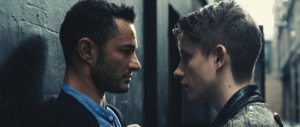
To some extent, Brace is as much about the grim reality for some of us as it is the grim dishonesty about some of us. After all, Adam is in a self-destructive relationship with a woman, before falling for Rocky while hiding the fact that he, himself is transitioning. Is this a meditation on the fluid nature of sexuality or something more serious like a major character flaw?
The debate as to when to ‘disclose’ one’s trans status to a prospective partner is one that has no clear answer. Some people feel that you should disclose before even meeting a potential crush, particularly in relation to online dating. Some feel that that deters people without ever giving them a chance to discover the person inside, regardless of trans status. Others would leave it to the first kiss, some to the first sexual encounter, and others still, somewhat questionably, and surgery allowing, feel that a ‘reveal’ is irrelevant, as they are effectively ‘complete’ in their correct gender. For something so very personal, should we not be afforded the luxury of at least making an impression on our date, before delivering what can seem like a bombshell?
Rocky is eager to disclose his trans status from the outset, whilst Adam, although older, is greener, more naive, and more scared of losing his new found interest. When Adam realizes just how deep Rocky’s self-loathing and internalized transphobia runs, he sees just how big a risk being honest will be.
What inspired you to make Brace?
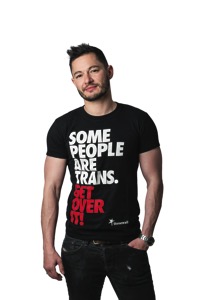
Brace is a very personal story, and one that I had never seen played out on screen. I imagined that I couldn’t be the only trans guy feeling the way that I was feeling, and the reaction since its online release has confirmed that, with an outpouring of empathy and support from the trans community. Aside from that, it has been cathartic beyond belief, and something that I am hugely proud of.
So much has changed about making, marketing and distributing pictures. How has this new food chain helped creators of LGBTQ content so that we may get more personalized stories like Brace do you think?
To be honest, I really wouldn’t know. I wrote Brace, co-produced it, was involved in the final edit, and then did all the promotion, marketing, submissions and so on myself. I was adamant that the film be seen, and so I went about making that happen. We made a small budget go very far indeed, and I truly believe that if your story or vision is important enough, then you will get it out there, by hook or by crook.











